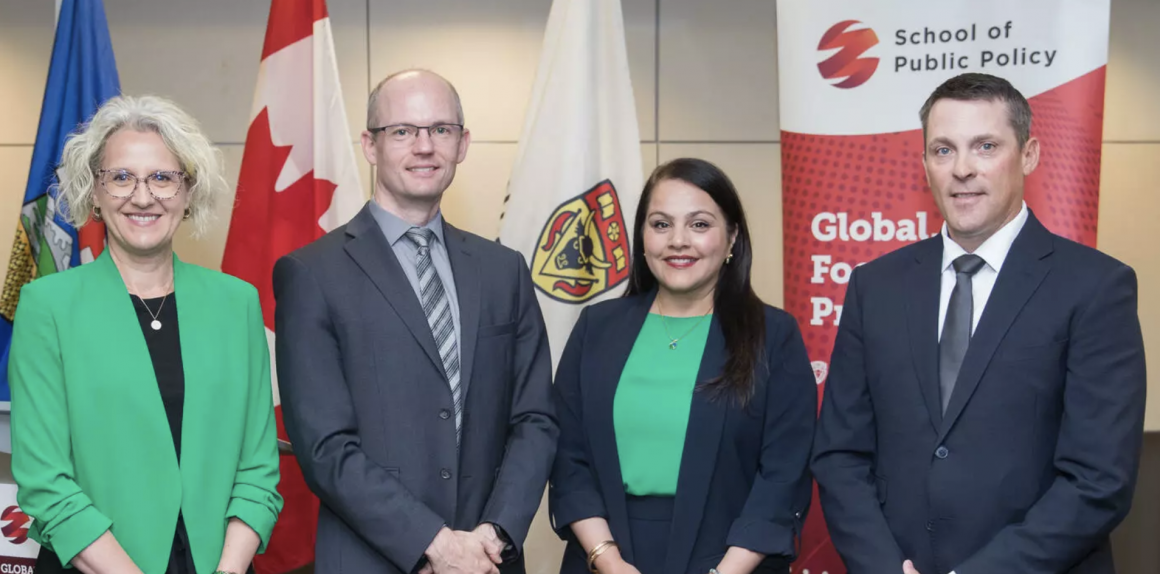
The University of Calgary’s School of Public Policy to host Canada’s Productivity Summit
By Julianna Keskic, October 15 2024—
Canada’s Productivity Summit will take place on Oct. 16 and Oct. 17 at the BMO Centre. It will bring together experts from across the country to explore Canada’s economic growth and productivity and to discuss how to drive investment to bolster economic growth and prosperity nationwide.
Notable attendees include, the former Deputy Governor of Canada, the Chief Economist at Scotiabank, the Chief Negotiator for Canada’s international trade agreement with NAFTA and European and Pacific Trade, as well as the former Federal Privy Council, Micheal Hornick. There will also be many Doctoral Economists from other universities, including the president of the Union Economics Association from the University of Toronto, Economist Chris Reagen from McGill University, and Kevin Milligan who is a tech expert economist from University of British Columbia.
“The event is a way to bring forward some ideas on how to improve economic growth, investment, productivity, as the title of the event implies, and we’ll break things up into lots of different areas,” said Dr. Trevor Tombe, the director of fiscal and economic policy at the School of Public Policy and a professor of economics at the University of Calgary, discussed what to expect at the upcoming Productivity Summit.
Although many technical and broad areas will be covered, Tombe highlighted that there will be more standard topics explored as well. This will include international trade, innovation and the role of AI, technology adoption and tax policies.
“We’ll also have deep exploration of climate policy in a standalone session, as it is a critically important area for policymakers and will be for many years,” said Tombe.
“[We also cover] Indigenous engagement, how to increase economic participation and partnerships between Indigenous communities and others. We’re also going to shine a light on some specific challenges facing different sectors like agriculture, telecommunications, housing and construction of vital infrastructures,” Tombe explained.
This event is open to the public and attendees don’t need expertise in economics to attend. Tombe added that there will be a lot of different opportunities for people to take part in depending on your areas of interest.
“We are going to have a one session on how to talk about productivity, policy and the economy in a way that actually engages with the general public. So we’ll have some politicians, including David Colletto, columnist Tony Keller, and Hannah Thibodeau who is a former journalist,” said Tombe.
Undergraduates might not be fully aware of what this is because the School of Public Policy doesn’t offer an undergraduate degree program. The school only offers a master’s level program in sustainable energy development and a separate master’s program in public policy.
“We have a lot of different professors from law, from political science, from health. Economics and Sociology. It’s an interdisciplinary center for policy oriented research and teaching. But we only have graduate programs.” explained Tombe
The School of Public Policy is designed to be interdisciplinary.
“All the faculty that are there, all the professors, they’re actually based somewhere else in the university. This makes it different from the Faculty of Arts or Faculty of Science, where they hire professors directly. The school of Public Policy pulls people from different parts of the university to create a very multifaceted academic environment,” Tombe said.
Undergraduates, graduates and faculty are encouraged to attend the event. It is a great chance to network and learn more about the economic factors that drive the country and play a part in every Canadian’s life.
To attend the event, register on the School of Public Policy website.
